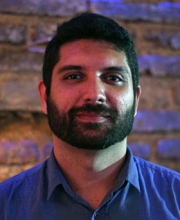
Changing the Landscape: Designing an Intervention Model for a Public Interest Civil Society Organization in the IT Private Higher Education System in Pernambuco: The Case of Embarque Digital
Unlike its public counterpart, private higher education has a certain ease in quickly expanding and contracting. This can be strategic in dealing with rapidly changing sectors, since private universities and colleges can adjust easier the number of slots they offer to market demand fluctuations. However, especially in Brazil, private institutions do not always (or even rarely) respond to these public interests. This is the case in the Information Technology (IT) sector, which faces a dual challenge: on one hand, there is a shortage of talent. Estimates suggest a need for more than 85 million tech workers by 2030, worldwide. On the other hand, this challenge is exacerbated by a disconnection between the content and competencies developed at universities and what is demanded by the job market.
It is in this context that Embarque Digital (Digital Onboard) was created: a public policy for the education of socially vulnerable young people in IT courses in the city of Recife, Pernambuco. We consider the program an intervention since it induces changes in the methodological and pedagogical proposals of the partner institutions, as well as in their programmaatic contents, in order to improve the overall performance of the courses. The program was established in 2021 by Porto Digital (a public interest civil society organization) with funding from the Municipal Government of Recife. Its goal is to promote the productive inclusion of young people and improve local socioeconomic conditions by developing human capital in the IT field within a technological park setting.
Embarque Digital is built on five pillars: funding, reduction of inequality, methodological change, reduction of the skill gap, and continuous evaluation, ideation, and evolution. In this seminar, we will not only present how the program operates but also how it was designed: the main concepts, the evolution of the model, the reasons for key decisions, engagement and adoption mechanisms, difficulties, and preliminary results. This will be an opportunity to discuss how this experience relates to others, to explore enhancements in the model, and to debate about the methodology for evaluating its impact.
About Giordano Cabral
Giordano is the head of the board at CESAR. He is a professor at Federal University of Pernambuco (UFPE), where he coordinates the research group MUSTIC, and the president of the CECM of the Brazilian Computing Society (SBC). He is an associate at CESAR, founder and member of the board of the Recife Agency for Innovation and Strategy (ARIES), and entrepreneur of five different digital startups. He has a PhD at Sorbonne (Paris, 2008), MsC at UFPE (Recife, 2002), and experience in laboratories such as SONY Computer Science Lab (Paris), National Institute of Pure and Applied Mathematics - IMPA (Rio de Janeiro) and Voxar Labs (Recife). His research involves generative artificial intelligence, educational technology, game development and gamification, higher education in computer science and innovation.

